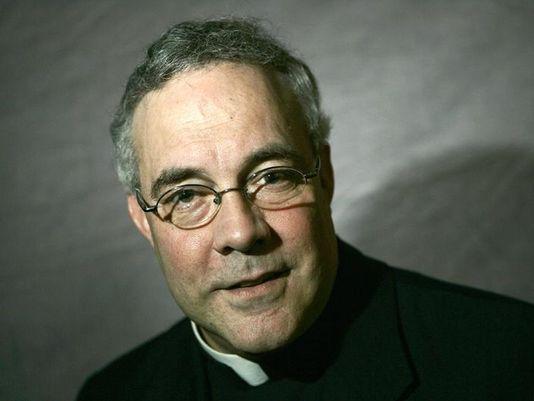|
Column: Is Pope Francis’ audit of Vatican Bank over?
By Robert Sirico
Stories of betrayal, deceit and scandal related to Vatican finances have a long history. After roiling in years of heightened scandal and innuendo of even darker conspiracies, Pope Benedict XVI subjected the Institute for the Works of Religion (IOR), also known as the Vatican Bank, to international banking standards throughout 2010 and 2011 in order to force greater transparency and accountability. After a leak of financial and other documents alleging corruption and scandal in various parts of the Roman Curia, calls for even greater reforms of the IOR and other financial management issues associated with the Holy See intensified. Enter Pope Francis. A strong indication of the newly elected pope’s seriousness in changing this was seen in the appointment of Australian Cardinal George Pell as Prefect of the Secretariat for the Economy with full oversight of all economic and administrative activities within the Holy See and Vatican City State. The reform efforts proceeded at a steady pace with PricewaterhouseCoopers as external auditors. Their work was complicated by the fact that there is also an Office of Auditor General, an internal office that was set up by the pope last year. Despite the complexities and overlaps, all of this augured hope. Until last week, that is. I arrived in Rome to participate in a conference on Catholic social thought one day after Sen. Bernie Sanders departed after a similar engagement. The Democratic presidential candidate’s finger-wagging at Wall Street and his proposed financial industry reforms came to mind as the news broke that the much-touted audit of Vatican finances had been “suspended.” The news created some buzz at the conference in no small part because Cardinal Pell was in attendance. Speculation ensued that the announcement from the Secretary of State’s office indicated an internal power struggle and that Pell was on his way out. But the rumors of Pell’s demise were, as they say, highly exaggerated. IOR reform requires unraveling decades of accounting inconsistencies wrought by the fact that until recently the various departments of the Vatican bureaucracy neither shared consolidated budgets nor even common accounting procedures. Additionally, a strong insular mentality that combines a lethal blend of Italian and bureaucratic tradition known as romanità all work together to produce an equally intransigent and self-propitiating culture. Reconciling contemporary reform and transparency with non-standardized, antiquated accounting techniques requires adequate time and no small amount of persistent patience. Another problem that needs to be considered is a general aversion throughout much of the Catholic Church, and among Catholic clergy, to understanding issues related to money and the economy. Pope Francis possesses a knack for focusing people’s attention on his humanitarian and spiritual message. More than one person has suggested, however, that he has a blind spot when it comes to sound economics. To be fair: the pope does not claim to speak with theological authority on technical matters of economics. More generally, he has said that he has “a great aversion” to economics because his father was an accountant who brought his work home with him. He confessed last summer he lacks knowledge of the area. “I don’t understand it very well,” he said. When concern for the poor fails to see how the technique of producing sufficient wealth to raise them from poverty, a dangerous dichotomy can emerge. A justified cry on behalf of the vulnerable need not ignore the ways a dynamic economy can actually be the solution, any more than the church that is “poor in spirit” need not be run efficiently and in accord with the best standards of international finance. A church that believes in an incarnated God must be invested in human history and structures of civilization. This is about more than the temporal problems of economic reform. It becomes a problem when piety is substituted from technique because “without technique,” as a philosopher once said, “piety is helpless to make use of nature for God’s glory” — whether that be the feeding of the poor or properly running a church. The Rev. Robert Sirico, author of “Defending the Free Market: The Moral Case for a Free Economy,” is president of the Acton Institute.
|
.
Any original material on these pages is copyright © BishopAccountability.org 2004. Reproduce freely with attribution.
